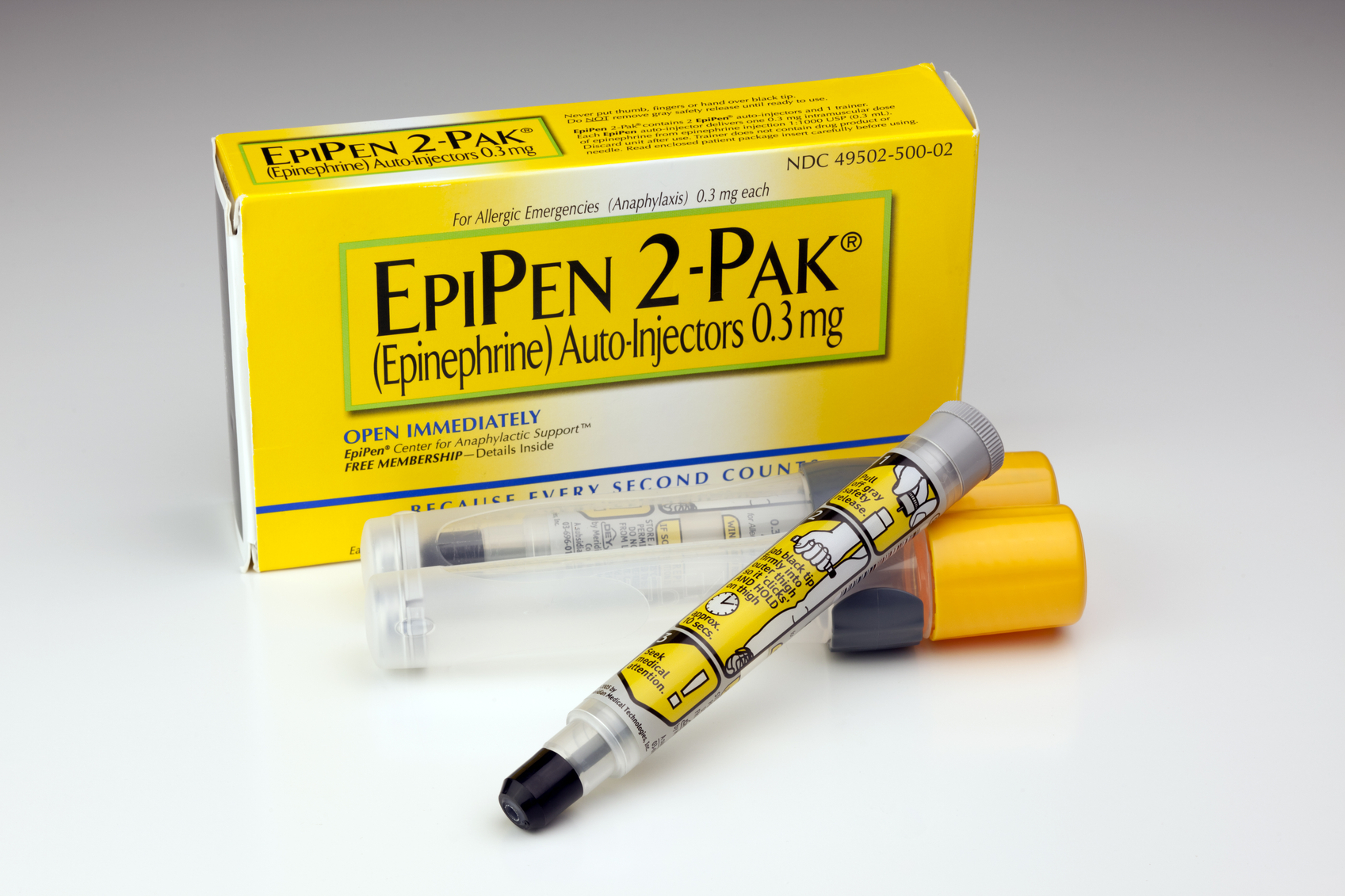Prices of EpiPens have been skyrocketing for the past few years, causing many to demand answers and even more to go without a potentially life-saving treatment that was once available, decades ago, for the price of a pair of drugstore sunglasses.
EpiPens could be called a safety net. People with serious allergic reactions are at risk of anaphylaxis. Certain foods, medicines, insect bites and stings, even latex, can cause symptoms such as wheezing, swelling, drops in blood pressure, vomiting, and loss of consciousness. The EpiPen quickly delivers adrenaline in the form of epinephrine to temporarily pause the immune system’s reaction to the allergen so the person may have time to reach emergency professionals. A severe allergic reaction can close the airways causing death within minutes, which is often too fast to give emergency personnel a chance to get on-scene and treat the reaction.
In recent years, the price has increased by an incredible 450 percent. In 2004 the price for a single dose was $100 dollars, adjusted for inflations, but now the cost is more than $600 dollars. Price hike aside, Mylan, the company that acquired the pharmaceutical company owning the rights to EpiPen, successfully lobbied in 2010 that the devices be required to be sold in pairs. The Miami Herald reported that Congress wants to know why the price has seen such a significant increase, but I also can’t help but wonder why the required double dose package wasn’t paired with a price cap or pricing regulations that would protect consumers.
The reason for two packs of epinephrine is in the common need for a double dosage. There is a general misconception that a single dose of epinephrine fixes the problem. But the fact is that each dose only buys time. Often times a second dose is needed while the person makes their way to the urgent care. And a trip to the ER for follow-up and monitoring is always needed following a reaction.
There is a great deal of focus on the effect this has had on families. AZ Central discusses the many ways families are feeling the impact beyond simple math and finances. They are faced with everyday challenges, such as avoiding get-togethers with friends, avoiding the outdoors, and having to become more label-literate than the average person; some say unreasonably so.
Even though the predominant focus is on families, there are plenty of people feeling the financial weight and worry associated with these rising costs. Huffington Post recently reported accounts of the difficulties some travelers with food allergies face, “As founder of the No Nut Traveler, I collect the testimonials of food allergic passengers traveling on commercial airlines. Shockingly, many food allergic passengers are being ridiculed, spoken to rudely by the airline staff and most egregiously, sometimes asked to leave the airplane when disclosing a food allergy.”
This is just one example that illustrates why being able to carry a personal dose of epinephrine is so important. If there is a widely accepted culture of mistreatment and discrimination toward those with allergies, it’s easy to understand the concern that food allergies may not be respected when serving meals, increasing the risk of allergen exposure.
For the meetings industry, this also highlights the concerns of attendees with food allergies. It’s an all too common occurrence that these attendees need to forgo the on-site meal they paid for to go off-site in search of food that will be clearly labeled or to find restaurants known for menus that include meals they can be certain will be safe.
We know we need to prepare in advance for our attendees by surveying their needs and planning our food and beverage with them in mind. We also know we need to train staff to know and understand how to communicate about food allergies. And, of course, the kitchen needs to observe cross-contamination best practices.
Not all attendees may be carrying epinephrine on them, but with the rising cost of EpiPens, even fewer may be able to carry this medication due to limited access. Part of our responsibility is to train staff to recognize the signs of an allergic reaction and to quickly and decisively act by calling for medical professionals. In states where it is legal for meeting centers to stock epinephrine, staff need to know where it is kept and have undergone the additional training required to administer the life-saving dosage.
Every second counts in a life threatening situation. While prices may level out or continue to spike, our duty to care isn’t altered. Preparation, best practices, stocking EpiPens, and ensuring proper training are all a part of a comprehensive solution in response to attendee needs.



